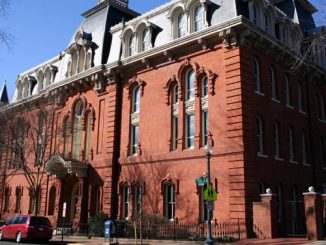
Newark, N.J., May 14, 2019 / 04:56 pm (CNA).- New Jersey Governor Phil Murphy signed into law this week a bill relaxing the state’s statute of limitations for child sex abuse victims.
The law will allow increased time for civil action and will permit victims to seek compensation from institutions as well as individuals.
The Archdiocese of Newark objected to certain portions of the bill, but stressed that overall, the Catholic Church is in favor of its crucial goal of bringing justice and healing for victims.
“While we disagreed on specific elements of this legislation, the Catholic community, the legislature, and the Governor sincerely agree on one key position – the need to restore justice for the victims of sexual abuse in New Jersey,” the archdiocese said in a statement.
Currently, the statute of limitations in New Jersey restricts sex abuse lawsuits to when the victim is 20 years old or two years after they first realize that they were harmed by abuse. In December, the new legislation will allow child victims of sexual assault to file civil lawsuits until they turn 55 or until seven years from the time they become aware of the injury, whichever comes later.
For those who have been previously barred from seeking damages, the law will also offer a two-year window to pursue legal action.
During a debate on the legislation in February, the state’s Catholic conference argued that only individual offenders, not institutions, should face civil action for past sexual abuse.
According to the Associated Press, Patrick Brannigan, executive director for the Catholic Conference of New Jersey, said the Church will fully comply with the government, noting that it “sincerely regrets that some in the Church failed to protect children.” However, he had requested the law’s start date be delayed.
Governor Murphy recognized the financial concern for organizations but highlighted the responsibility to the victims of sexual abuse.
“Survivors of sexual abuse deserve opportunities to seek redress against their abusers,” he said, according to North Jersey. “ This legislation allows survivors who have faced tremendous trauma the ability to pursue justice through the court system.”
In February, all the Catholic dioceses of New Jersey released lists of clergy who had been credibly accused of sexual abuse of minors dating back to 1940.
On the list is disgraced former cardinal Theodore McCarrick, who headed New Jersey’s Diocese of Metuchen from 1981 until 1986 and the Archdiocese of Newark from 1986 until 2000. He retired as Archbishop of Washington.
McCarrick resigned from the College of Cardinals in July 2018 after being credibly accused of abusing two minor boys. He was found guilty by the Holy See and was removed from the clerical state in February.
As part of efforts to foster the healing of victims and as an alternative to lawsuits, the five Cahtolic dioceses of New Jersey have set up their own compensation fund. The Catholic Conference said the compensation fund offers a quicker alternative to the litigation process with a lower level of proof than is required by the court.
According to North Jersey, Senator Joseph Vitale, the primary sponsor of the new law, expressed concern about the trustworthiness of institutions. He also said it is important that the names of abusers are released to the public.
“With a compensation fund, there’s no discovery. You are offered a sum of money for your injury and therapy. But the public doesn’t know what happened or who the pedophiles are, and that’s critical to know so we can protect children,” Vitale said.
In the statement on Monday, the Archdiocese of Newark reiterated its current efforts to help promore the healing of sex abuse vicitms, as well as steps taken to prevent future abuse.
“The Catholic community is confident that the Independent Victims Compensation Program established by the five dioceses in New Jersey is a significant step towards restoring justice for those who, as minors, were abused by ministers of the Church,” the archdiocese said.
“Further, we are committed to the comprehensive healing of those harmed and we will continue our policies aimed at protecting children from abuse.”
 […]
[…]









